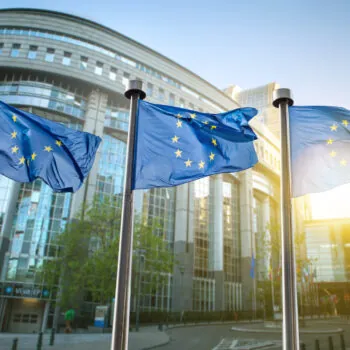Tom Burke is interviewed on the agenda-setting BBC Radio 4 Today Programme.
Alongside Oxford Professor of Geosystem Science, Myles Allen, E3G chairman Tom Burke is interviewed about the newly launched report ‘The rise in global atmospheric CO2, surface temperature, and sea level from emissions traced to major carbon producers’. The new study, conducted by the Union of Concerned Scientists, of which Allen is a member, quantifies the impacts of emissions traced to major fossil fuel producers on the changing climate. In the interview, Allen calls for companies whose products cause greenhouse gas emissions to be held liable for environmental consequences such as the current hurricane in the Caribbean. Tom Burke points out the chain of liability is complex and a more nuanced approach to tackling climate change is needed.
You can listen to the full interview here. A transcript of Tom's contribution can be read below:
Well, I think Myles' paper is going to help start a very important debate and take it forward but it's a little bit simple to say that the oil company’s products are what causes climate change, which we have known for a long time, and is absolutely right, and then to say that is where the chain of liability ends. The chain of liability also includes all of the companies that make the products that burn the fossil fuels, all of the governments that permit both those companies and the fossil fuel companies to operate, and all of the people who then make used of the product made by all of the companies that burn fossil fuels, so there is a very long chain of liability here. So when you come to say who is responsible for what proportion of the damages, you have a very complicated question about how we allocate the responsibility in society. Now being able to quantify a bit more precisely both the question of whose fuels? and also the question of how much you can attribute any particular set of damage to climate change? All of that is going to help move that debate onwards. But I think the bigger issue is not so much penalising companies for damages to individuals, but how to you get the big emitting countries to pay for the damage that is being done in the poorest countries around the world. That’s not an issue that is going to come to a court anytime soon.
I don’t think that we can afford to wait for the courts to get around to sorting this out. I think the fact is that governments can act now, to move fossil fuels out of our need to meet people’s needs for energy, the can do that much faster than they are doing currently, and that way of getting governments to act can get us further along the right road. We got on to the right road in Paris, but we are not going down it fast enough or far enough, and that is really something for governments to take responsibility for, not to focus on companies so much.


